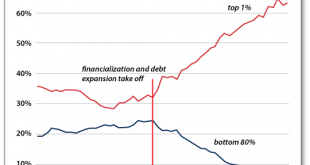The average life expectancy for those born in 2018 in the United States is 76 for males and 81 for females.
Compare these figures to almost 80 years ago, where males born in 1940 lived until age 61 and females age 65, and there’s no question we are living longer.
But eventually we’re all going to die. And as morbid as that sounds, there are some important things you need to consider before your time is up.
I recently read some good advice regarding estate planning I thought I’d pass on. An estate planning lawyer said something interesting to one of her clients that caught my attention:
“People who aren’t rich might need estate planning more than rich people because they might not be able to afford to pay probate fees in the case of an untimely death.”
If you die without a will, the US court system determines who gets your assets. If you’re single and childless, that could mean your estate goes to your parents or your siblings.
If you’re married, your assets may all go to your spouse. Or be split between your spouse and children of another marriage. If you’re an unmarried couple, your estate goes to your biological family, not your partner. And, all for a price…
Without a will or a living trust, your beneficiaries can pay anywhere from 3% – 10% of the assets in fees in probate. They could be waiting up to a year or longer for all assets to be properly distributed.
An easy way to reduce these fees is simply by creating a revocable living trust.
On average, the costs to settle a trust are between 1% – 3% of assets. Another benefit to a revocable trust is it adds a layer of privacy. So you don’t have to worry about your kids fighting over who got what.
Once you’ve covered the basics of estate planning, like writing a clear will, setting up a revocable living trust, and assigning your Powers of Attorney, you should consider these next three points that were brought to my attention.
1. You Need to Forecast Your Death
There’s no easy way to say it.
Time is passing every second of every day, which means your biological clock is winding down as you read this.
In order to best plan your finances and be able to enjoy the most of your money, you should have a rough idea of when you might die.
How can you predict this?
The Social Security Administration published Actuarial Notes with tables that predict when someone will die based on the year they were born. You can find the latest table here. Use this as a guide to predict when you might die.
Next…
2. You Need to Forecast Your Wealth and Estate Taxes
Time is your most valuable asset and it’s also a great way to build wealth through the power of compounding interest. Based on your current financial state, you need to forecast accurately how much money you think you will have when you die.
Once you’ve done this, you need to then forecast the lifetime gift tax exemption and your death tax rate for when you pass.
For example, this year the lifetime gift tax exemption is $11,400,000 per person. The top marginal tax rate is still 40%.
If you die in 2019 with $21,400,000 in wealth to pass on, your tax bill will be $4,000,000 ($21.4M – $11.4M = $10M X 40%).
But, if you die in 2029 with $20,000,000 when the lifetime gift tax exemption has declined to $5,000,000 and the death tax rate has risen to 50%, then your inheritor’s tax bill will be $7,500,000 ($20M – $5M = $15M X 50%).
That’s a lot of taxes to shell out on top of the taxes you already paid accumulating your wealth. Historically, we are at the highest estate tax exemption with the lowest death tax rate since 1997.
Although we’ve been trending in this direction for the last 22 years, the doubling from 2017 to 2018 is an outlier.
So, it’s not unreasonable to assume the estate tax exemption will decline and/or estate tax rate will increase after the Tax Cut And Jobs Act expires in 2025. Which brings us to our last point.
3. You Need to Give Away More Than You Think
You likely need to be donating or spending more of your money than you are right now.
Here’s why:
In the scenario above, your tax bill will be $4,000,000.
Would you rather pay a $4,000,000 tax bill or spend more money on yourself and your family?
If it’s looking like your worth will exceed the lifetime tax exemption amount, then you’re better off using your money while you’re still alive. Imagine it takes 20 years to get to a $21,400,000 estate from $5,000,000 using $200,000 annual contributions and a 5% annual return.
If we assume in 20 years, the estate tax exemption is still $11,400,000 at a 40% death tax rate.
A better strategy would be to not save $200,000 a year, and instead spend the $200K/year on charity and loved ones for the next 20 years.
Even if you didn’t save a single penny over the next 20 years, you would still end up with $13,266,000 at a 5% compound annual return.
Therefore, your death tax would be a more reasonable $746,400.
I strongly believe the majority of wealthy people will die with too much.
You need to get clear on how much money you’re going to have when you die and when you think your time will be up so you can start spending more while you’re alive and enjoy life to the fullest.
To a richer life,

— Nilus Mattive
Editor, The Rich Life Roadmap
Source link
 Best Stock Hints Latest Tips To Buy & Invest Best Stocks Today
Best Stock Hints Latest Tips To Buy & Invest Best Stocks Today


